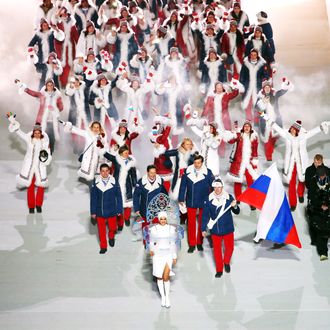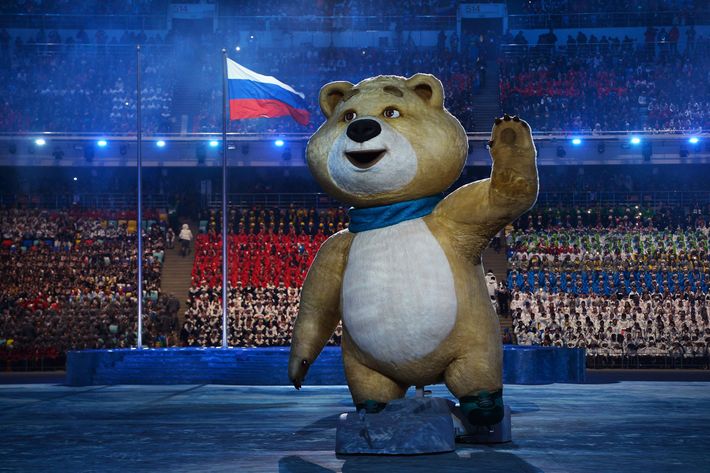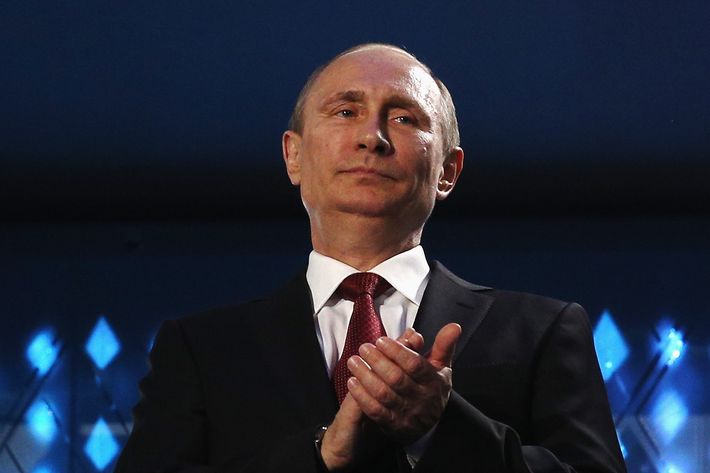
Last fall, a report by the World Anti-Doping Agency detailed the systematic use of performance-enhancing drugs by Russian athletes. And in a New York Times report today, the former director of the country’s anti-doping lab describes not just the state-run program of usage by elite Russian athletes competing in the 2014 Sochi Olympics, but the elaborate effort to swap out tainted urine samples with clean ones — a process that he believes included Russian intelligence officials. According to the director, Grigory Rodchenkov, dozens of athletes took part in the doping program, including at least 15 medal winners.
Rodchenkov, an anti-doping expert, says he designed a precise cocktail of three anabolic steroids, which would be dissolved in alcohol — Chivas whisky for men, Martini vermouth for women — before being consumed to speed up absorption and shorten the detection window. He claims many Russian athletes used the substances in the lead-up to the London Summer Games in 2012 and throughout the Sochi Winter Games in 2014. There had been tremendous pressure for Russian athletes to perform well during the Sochi Games, and the country’s athletes ultimately took home more medals than any other country: 33 overall, including 13 golds.

But Rodchenkov says a third of those medals were won by athletes whose names appeared on a spreadsheet provided to him before the Games that outlined the doping plan. They included bobsledder Alexander Zubkov (who won two gold medals), cross-country skier Alexander Legkov (who won a gold and a silver), and Alexander Tretyakov, who won gold in the skeleton event. Rodchenkov said that the entire Russian women’s hockey team (which didn’t medal) was doping throughout the Games.
Rodchenkov says that Russia’s sports ministry actively guided the doping effort, though the Russian sports minister described the Times’ inquiries as baseless, and said they were an attempt to discredit Russian sports in advance of the Rio Olympics. The Times says that while Rodchenkov’s account couldn’t be independently verified, it was consistent with broad findings in last year’s WADA report.
But perhaps even wilder than the doping program itself is how Rodchenkov claims they managed to cover it up. Typically, doping athletes in major international competitions have to stop using the banned substances in advance of the event so as to not trigger a positive test. But with the Sochi Games on Russian soil, Rodchenkov says Russian sports officials saw an opportunity to get around the system, since they could control the athletes’ lab results.
In advance of the Games, a man Rodchenkov came to believe worked for the Russian internal intelligence service showed up at the lab, and, according to Rodchenkov, began inquiring about the bottles used to store the urine samples that get tested for banned substances. As if there were any doubt why he was interested in the bottles, before the Sochi Olympics began, the man presented Rodchenkov with a previously sealed bottle that had been opened, with its uniquely numbered cap still intact.
Here’s how the process worked: When a doping Russian athlete won a medal, Rodchenkov says he or she would snap a picture of their sample forms, and text them to the ministry. The forms contained a seven-digit code designed to keep the sample anonymous. This way, the correct sample could be retrieved.

Then, in the middle of the night, Rodchenkov would go to a shadowy lab he’d designed next to the room where the urine samples were stored. Rodchenkov says a colleague inside the room would pass samples into the lab through a hole in the wall, and they’d then be passed onto the man Rodchenkov believed was a Russian intelligence official. Hours later, he’d return to the lab, with the caps unlocked, and also bring the clean urine of the athletes whose samples were being replaced.
The tainted urine would be flushed down a toilet, and the bottles would be washed out and filled with the clean urine. Rodchenkov would add table salt or water to balance out any inconsistencies between the old and new sample. By the time the samples were ready to be tested the next day, the supposedly tamper-proof bottles looked as if they hadn’t been touched. Rodchenkov says he estimates that as many as 100 dirty samples were swapped out during the Sochi Olympics.
Rodchenkov told the paper that he’s unapologetic about his role in the program, and says he considered it a condition of his employment. But once he was named in the WADA report, he fled the country for Los Angeles, fearing for his safety. Back in Russia, meanwhile, two of his close colleagues died suddenly in February.
In fact, Rodchenkov considered his work on the doping project a “strong accomplishment.” Said Rodchenkov to the Times: “We were fully equipped, knowledgeable, experienced and perfectly prepared for Sochi like never before.” He added: “It was working like a Swiss watch.”





























